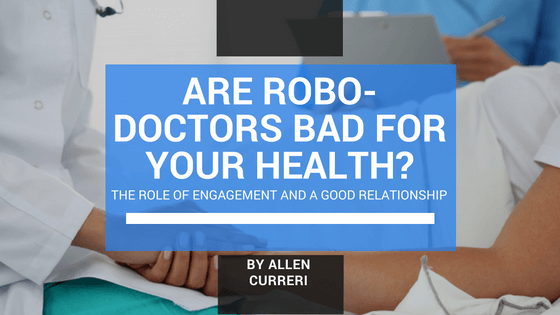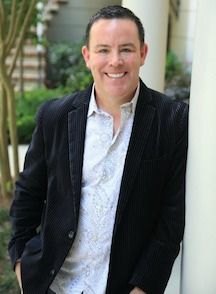Technology has made almost every aspect of our lives faster, easier, more convenient, and information-laden. The smarter our computers get, the more we rely on them — and usually this is a good thing. Computers, after all, are able to store and process information in mind-boggling quantities, and more information should lead to better decisions.
There are some situations, however, in which increased speed and impartiality can be dangerous.
Between IBM’s supercomputer Watson and the countless medical apps springing up that offer services from symptom checkers à la WebMD to virtual appointments with real human doctors, the medical art of diagnosis may be reaching a pivotal point. As we learn to integrate new technologies with human skill, it’s easy to forget to ask one crucial question: What do we actually need from our doctors?
Think about what makes you feel comfortable and cared for when it comes to your health. Chances are, your ideal doctor is not only intelligent and highly skilled, but they are also kind and understanding. After all, you may have to discuss openly with your doctor things that you would cringe to mention to a close friend. You may have to trust your doctor with difficult and painful decisions, or work closely with them on the hard task of changing your lifestyle and ingrained habits.
Studies show that a good bedside manner is not just a perk — it’s essential to your health. When patients describe a good relationship and high level of comfort with their doctor, they are far more likely to follow the best medical advice and take an active role in their own wellbeing. A 2014 analysis of 13 clinical studies showed that positive doctor-patient relationships based on empathy and patient-focused care had measurable, statistically significant effects on what they called “hard health outcomes,” including conditions like diabetes, pulmonary infections, and obesity.
A productive relationship is a delicate thing based on mutual respect, empathy, and involvement. We understand this intuitively, and the research backs it up. Engaging patients actively in the process not only helps to educate them and put them at ease, but also leads to patients who are healthier biologically and report higher life satisfaction. After all, it makes sense that if a doctor assumes an all-knowing approach and makes all the decisions solo, the patient takes on a more passive position.
The key to healthy relationships and healthy patients, it seems, is patient involvement, thoughtful doctor communication, and engagement with patients beyond the office setting. Here’s where it all ties back to technology: doctors can only involve patients in the process if they themselves are actively engaged with the diagnosis and treatment decisions. If doctors allow themselves to become reliant on AI to do the cognitive heavy-lifting, they risk losing the touch of creativity and critical thinking that makes a human doctor brilliant, and allows them to intelligently and thoughtfully implement information from a computer.
How can doctors build the necessary trust and involve patients in their own health when the entire process is nothing more than a machine spitting out an answer?
It’s not, it turns out, an unwarranted fear. A recent experiment at Georgia tech found that people are all too willing to trust an authoritative machine blindly, even when the stakes are extremely high. Participants believed they were in the lab for a routine study when an alarm rang and the hall filled with simulated smoke. They willingly followed an “emergency guide robot” as it led them in the opposite direction from emergency exit signs, even when they had earlier witnessed the same robot give faulty directions and even break down entirely.
Trusting in machine intelligence to eliminate human bias, then, may be an oxymoron. Technology can provide immeasurable value when it comes to providing and recognizing huge amounts of information, but that information itself loses value unless combined with a human touch.
Now more than ever our doctors must be highly trained not only in medicinal science but in the art of critical thinking and thoughtful creative engagement with the medical process. Only a truly mindful doctor can properly utilize the incredible power technology places at our fingertips.


